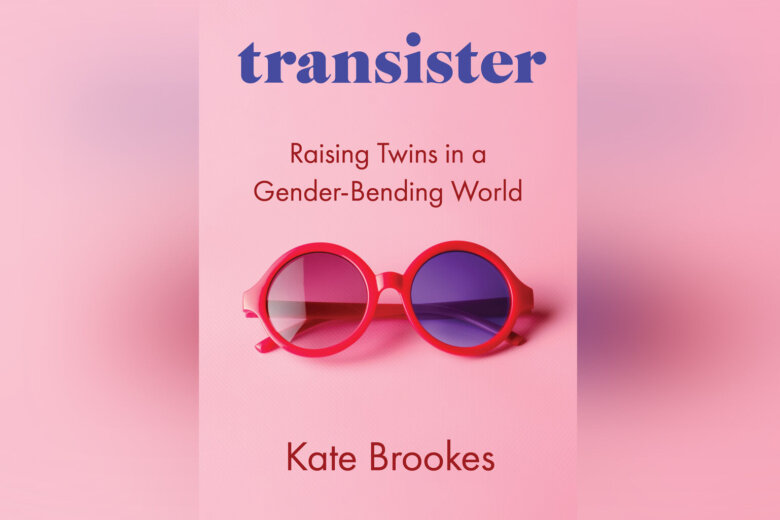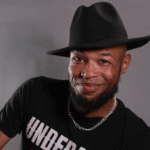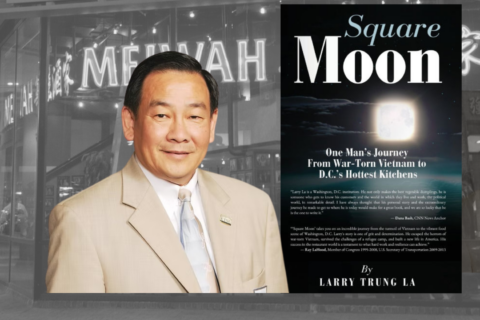This story was written as part of the WTOP Book Report series authored by Terik King. Read more of that coverage.
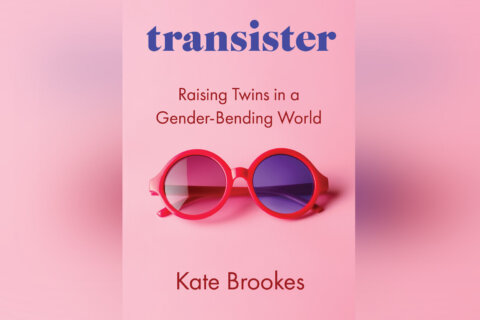
Imagine you’re in your early 40s, and after struggling through two years and seven rounds of fertility treatments, you become the mother of twin sons. But one of your children — from day one — is different from the other.
That’s the story Kate Brookes tells in her new memoir “transister: Raising Twins in a Gender Bending World.”
“I have twins, two kids were pulled out of my stomach,” Brookes tells the WTOP Book Report. “When I gave birth, the doctor said it’s a boy. Then he said it’s another boy. We believed him. The doctor was wrong. By eight years old, one of my — I thought — sons said to me, ‘Mama, I think I’m a transister.'”
The story that preceded and followed that pivotal moment, when Brookes realized she was the mother of a transgender daughter, is an extraordinary narrative of parental acceptance and affirmation.
Different from day one
“Transister” covers Brookes’ and her husband’s journey with the twins from conception through the age of nine.
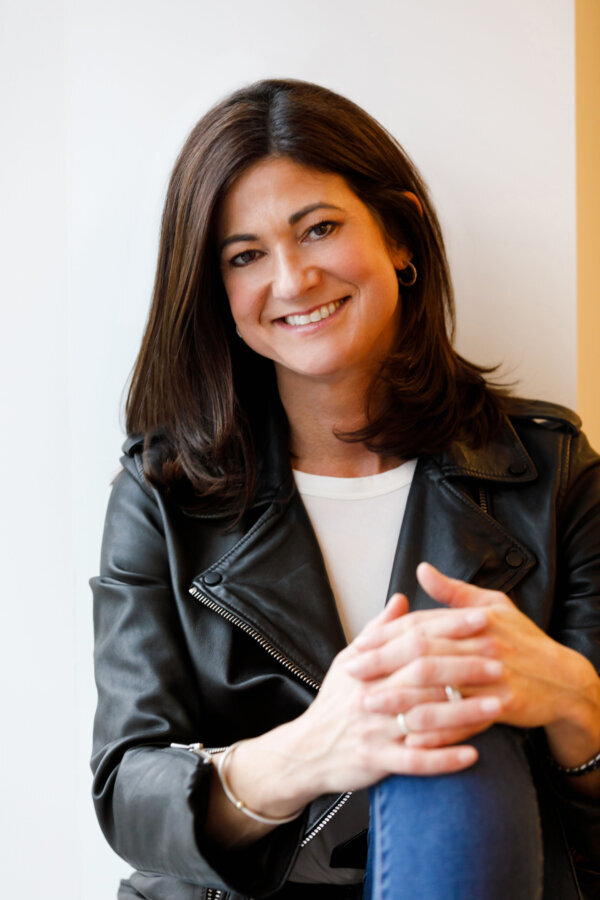
The daughter of a mentally ill mother, Brookes wrote that she had long harbored a desire to not only be a mother, but to be one who could parent her children more lovingly and supportively than her own mom parented her. Brookes wrote that she was “determined to give my children the childhood I hadn’t had, in a home filled with love, kindness, and a sense of normalcy, stability, and predictability.”
Brookes herself was never a “girlie-girl,” so when her fertility treatments resulted in a pregnancy with twins, she quietly, secretly, wished for boys.
Brookes wrote that while the twins were in utero, they had distinctly different demeanors, such that she gave them the nicknames “Contemplator and Flailer.”
“Jacob seemed to be ‘Contemplator,'” Brookes told WTOP. “Chilling in my womb. I imagined him just lying there and contemplating world events. Gideon, who was ‘Flailer,’ seemed to be moving and grooving the entire time he was in my stomach … and seemingly uncomfortable in his own skin. Literally and figuratively … he seemed like he was ready to do battle with the world.”
(The twins’ names are changed in the book to protect their privacy.)
Some of Gideon’s discomfort was demystified at 18 months old when the child was diagnosed with sensory processing disorder. But Brookes knew there was more to the story.
“By the time the twins were two and a half, Gideon was starting to express himself in ways that said to me, ‘Wow, I think this kid might be grappling with his gender identity,'” Brookes said. “Even at that young an age. At age three, he would point out women’s shoes and say ‘heels, flats, heels, flats’ … He would do hair and makeup and try on my clothes and try on his girl friends’ clothes. And to me it seemed that it wasn’t just pretend and make believe. It was his kind of way — I thought at the time — of figuring out who he was.”
‘Mama, I think I’m a transister’
Brookes, her husband and the twins encountered all the typical benchmarks of growing children — with Jacob and Gideon both experiencing them in very different ways.
“When one kid wanted Barbies and princesses and liked purple and pink, that was fine,” Brookes recalled. “And there were times that then Gideon would get made fun of for playing with dolls or putting on makeup or liking things that were different than his brother Jacob liked, and there were times that Jacob would be a little embarrassed because sometimes he would be made fun of for the things that his ‘twin brother’ liked.”
Although Brookes suspected that Gideon might ultimately identify as transgender, she was determined to learn as much as she could to support her child while allowing them to develop at their own pace.
“We started going to support groups for parents of gender-nonconforming kids,” she said. “Because we kind of saw what was coming. We wanted to be prepared, and we wanted to support our kid.”
Ultimately it was at age eight that the anticipated moment arrived. One day over breakfast with Gideon’s father and brother, Gideon inquired about a message posted on a doll in a shop window: “What does ‘protect trans kids’ mean?”
Brookes told WTOP, “I tried to explain it in kids’ terms. I didn’t do so swimmingly.”
The twins’ response was something of a surprise. “They both were like, ‘Wow, that’s weird,'” Brookes recalled.
But over the following several weeks, Gideon would pepper Brookes with questions on the topic.
“I tried to answer the questions as best I could over time,” Brookes said. “Then fast forward — we’re walking down the street, holding hands on Broadway. We stop at a crosswalk. And G looks at me and says, ‘Mama, I think I’m a transister.’ To which I replied, ‘Do you mean transgender?'”
The child responded, “‘Yes. When I was in your tummy it was a mistake. I was supposed to come out a girl.'”
Brookes said that her child’s pronouncement evoked both fear and relief for her. She feared “the beginning of a new journey,” she recalled but also felt relieved, “because I thought my child would now have a better life because of this — because she finally realized who she was.”
‘I think it’s lifesaving care’
Brookes writes in “transister” of the myriad social transitioning changes she and her daughter navigated after that point to construct her new identity: decisions to change pronouns, notifying the parents of friends, school transfers and the selection of a new name.
“That time when she said ‘I’m a transister’ to when she actually presented to the world as a girl, was really excruciating,” Brookes said. “She went through 13 names! It was hard to keep track.”
Ultimately, Brooke’s daughter settled on the name of Gabriella.
Gabriella today is, as Brookes told WTOP, a “happy, healthy, awesome, beautiful, smart, funny” 14-year-old.
“Her super power is making friends. She has this magical ability to attract people,” Brookes said.
Gabriella identifies as “stealth” which means she doesn’t disclose that she is transgender publicly. “She’s just a girl,” Brookes said. “She tells her best friends, she tells people when she feels comfortable talking to them.”
As for Brookes herself, the experience of raising a transgender child has been life-altering.
An award-winning TV reporter, anchor, producer and filmmaker, she has become active in LGBTQ causes, even writing a story for HuffPost describing her and Gabriella’s experience as tourists in Florida, one of 37 U.S. states that have introduced at least 142 bills banning or limiting access to gender-affirming care.
Although Brookes and her family reside in New York City, they are affected by these developments.
“Now that my daughter is 14, she knows about the issues in the news,” Brookes said. “She said to me the other day, at 14, ‘Mom, if I hadn’t gotten on puberty blockers, I would have killed myself.’ She had never said that to me before. So I don’t think it’s just gender-affirming care. I think it’s lifesaving care.”
Described by its publisher She Writes Press as “not a prescriptive narrative, but an affirming one,” the book hits on one primary theme throughout: acceptance.
“If you accept your child, if you affirm your child, the chances are your child will thrive,” Brookes told WTOP. “That goes for all kids, not just for trans kids. Acceptance is protection.”

